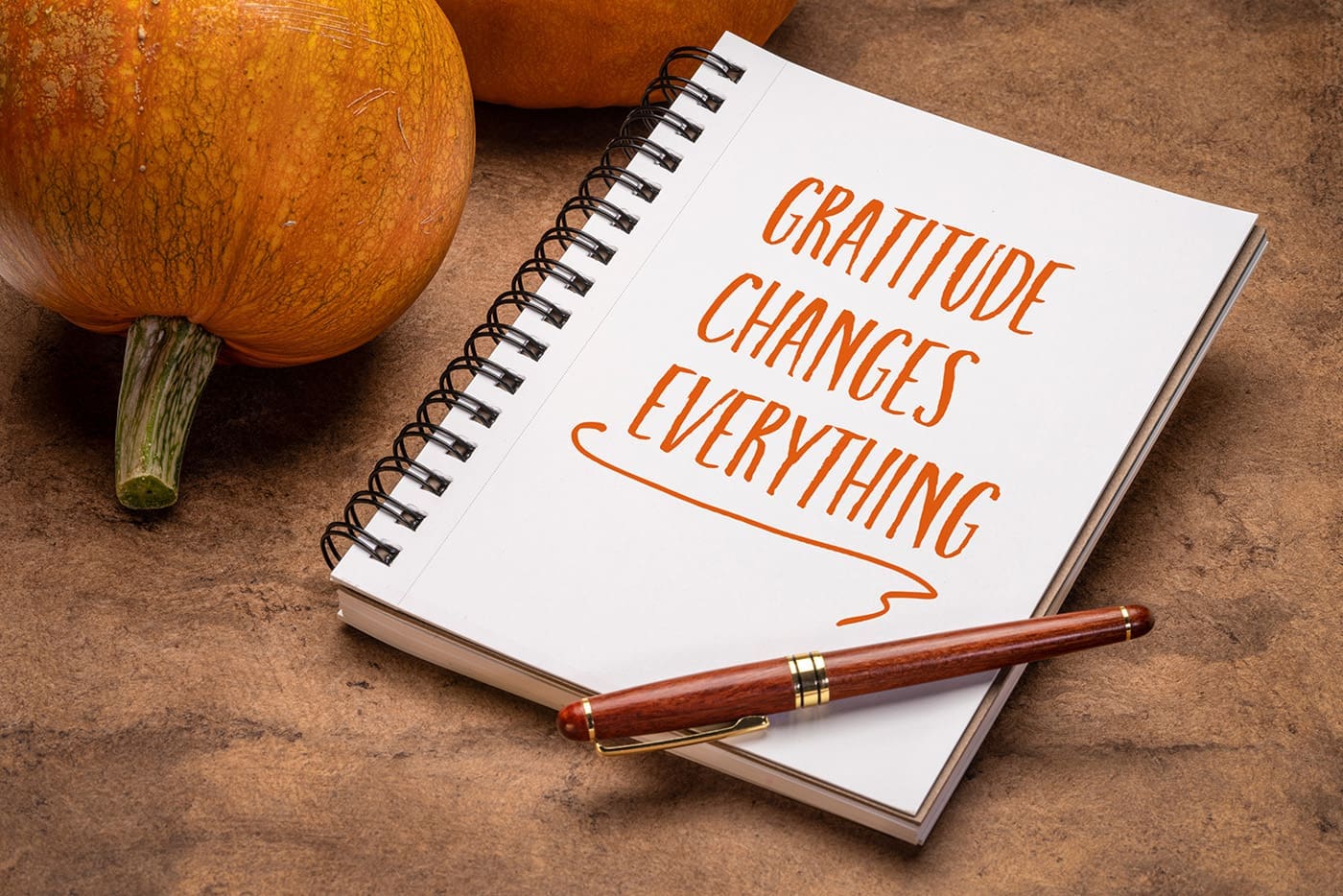“Gratitude helps us see what there is, instead of what there isn’t.”
During the year of 1621, colonists and Wampanoag Indians shared an autumn harvest in Plymouth, MA. Most Americans acknowledge this as the first Thanksgiving celebration. However, some historians argue that Florida, not Massachusetts, may have been the actual site of the first Thanksgiving in North America. Nearly 60 years prior, in 1565, a fleet of Spanish ships landed on the beach and painted a cross, christening their new settlement as St. Augustine. In celebration of their arrival, 800 Spanish settlers held a festive meal, shared with the native Timucuan Indians.
The roots of “giving thanks” and showing gratitude trace back to Native Americans and, even earlier, to ancient times. The Egyptians, Greeks, and Romans also feasted upon the fall harvest while paying tribute to their gods. Thanksgiving also bears a resemblance to the ancient Jewish harvest festival of Sukkot.
While the “who and where” of the first Thanksgiving celebrated in the United States is debatable, there is little debate about who first discussed its actual purpose; which is gratitude – a concept that dates back to writings of Aristotle, Homer, Cicero, and Seneca. One of the earliest writings about gratitude from Cicero states:
“Gratitude is not only the greatest of virtues, but the parent of all the others.”
The word gratitude is derived from the Latin word gratia, which means grace, graciousness, and gratefulness. The definition for gratitude is “the quality or feeling of being grateful or thankful”. The expression of gratitude is through one’s words or deeds.
However, the real issue is:
How do we express gratitude when we don’t feel it?
The answer to this is not found in history books, but rather the modern study of neuroscience. Neuroscience explores the brain’s ability for neuroplasticity. In short, neuroplasticity suggests that our brains and behaviours have the ability to change in response to our thoughts, lifestyle, and environment.
If you have ever made a New Year’s resolution that you managed to keep, you have successfully rewired your brain think differently in order to accomplish what you resolved to achieve. You successfully engaged with the neuroplasticity of your brain. You rewired the old route that previously fed negative habits or thinking patterns to a new route that led to healthier behavior.
But, if you struggle to stick to your resolutions, don’t give up! You’re rewiring can still happen. It may just be that the old neural pathways are deep-rooted and require a little more effort to achieve your desired change.
According to Harvard Health, studies have shown that practicing gratitude can rewire your brain to cause more significant feelings of happiness and well-being. The psychologists who conducted the studies found that those who take the time to write down what they are grateful for and those who expressed gratitude for someone else’s kindness are happier, exercise more, and have fewer visits to a physician.
The most interesting aspect of neuroplasticity to me, given my interest in the neuroscience of relationships, is that the person who drives you a little crazy – a spouse, child, family member, or friend – is the exact person to teach you neuroplasticity.
How is that possible?
In actuality, it is your response to an interaction that you have complete control of, not the other person’s reaction. Please understand that I am not referring to how you respond to a person who is physically or verbally abusive, or treats you with disrespect. I’m talking about a person who quickly drains your patience and gives you feelings of an increased heart and breathing rate; causing you to feel tense and to think to yourself:
“Really! Not again!”
Why do your mind and body react this way? It’s because you have trained your mind to take that particular neural pathway, regardless of the fact that it stresses you out.
Many studies have found that chronic stress can lead to anxiety, depression, and an addictions to drugs, alcohol, your iPhone or social media, as examples, and can cause serious health consequences.
Your brain’s plasticity will help you overcome chronic stressors more than you can imagine. With practice, you can change the neural pathway away from your habit of closing down, mentally, and becoming anxious or aggravated. Start by recognizing the “hook,” which may be the triggering word or action that sets you off. You have the choice of whether to “bite” on the “hook” or, instead, to not take the “bait” that leads you down the same neural pathway that you have taken time and time again. You can learn to “swim away” from the “bait” by developing a routine – take a deep breath, take a “time out”, and create a mantra. The mantra I’ve come up with is:
“The person who cares the least controls the most.”
One of the things many neuroscientists recommend is meditation. If you feel that you cannot meditate because your too busy or have tried and it doesn’t work for you, I understand. I’ve used these same excuses. However, I then came across a guided meditation on YouTube: The Powerful Release of Letting Go (see below). This video has proven to be a valuable lesson to me and has allowed for me to sit and be with myself while remember all that I have to be grateful for.
What do you think? Please feel free to leave a comment below.





0 Comments